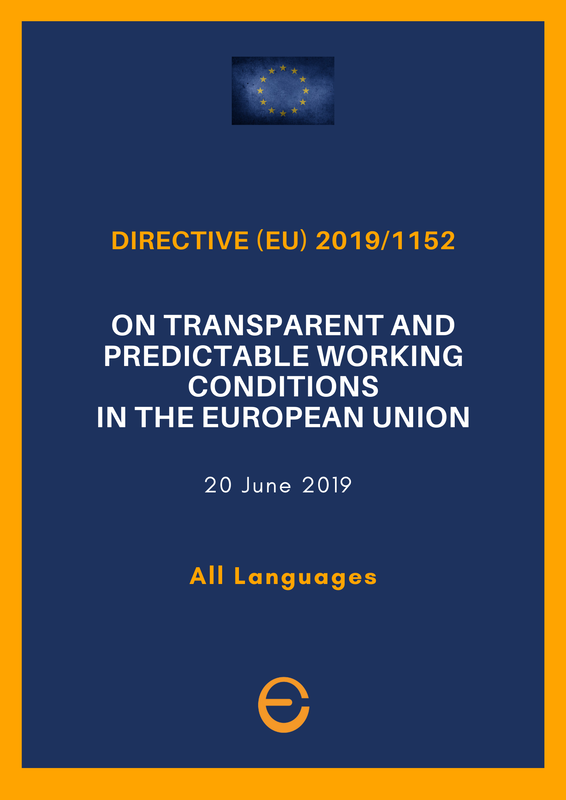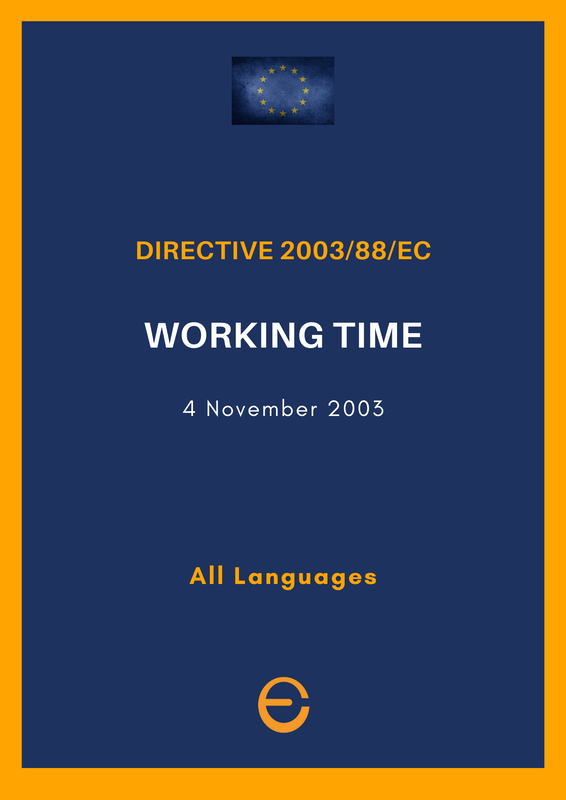EU SOCIAL PILLAR
Chapter II
Chapter II
7. Information about employment conditions and protection in case of dismissals
"Workers have the right to be informed in writing at the start of employment about their rights and obligations resulting from the employment relationship, including on probation period".



